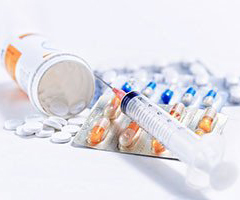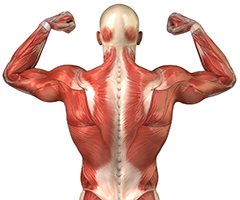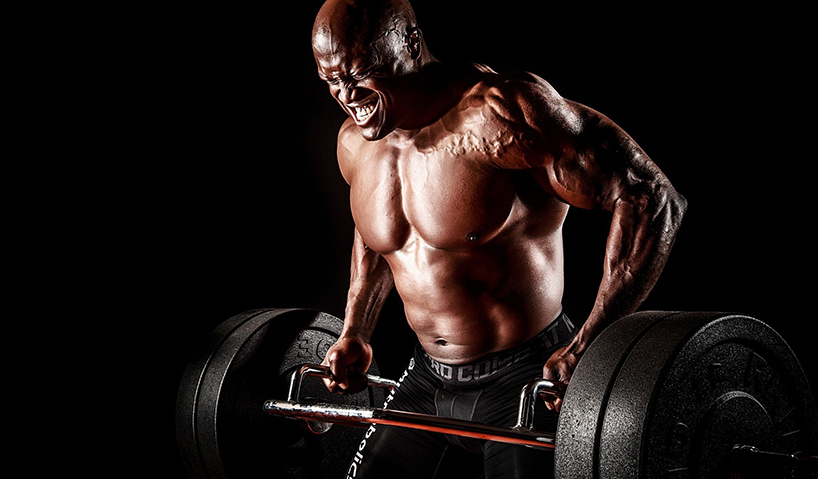
Once in the blood, molecules of steroids spread throughout the body, where they react skeletal muscle cells, sebaceous glands, hair follicles, certain areas of the brain and some endocrine glands.
Selective accumulation of anabolic steroids and testosterone in the body is due to the presence in the cells of the so-called "target organs" - the specific molecular structures of protein nature, which are called receptors. These intracellular receptors for testosterone, first , different from the receptors of other steroids (estrogens, progestins, corticosteroids and other) and, second, interact with anabolic steroids as related to testosterone compounds. Linked a complex receptor-steroid is transported through the cell cytoplasm into the cell nucleus, where it interacts with proteins.
The result is a stimulation of the synthesis of all types of nucleic acids and "start" the process of formation of new protein molecules. These new molecules or are used inside the cell, or are released from the cells and carried by blood (immunoglobulins, fibrinogen, blood transport proteins, etc.).
Another important aspect of the anabolic action is the effect of anabolic steroids on the permeability and structure of cellular membranes and subcellular components. As a result, in cells and subcellular structures actively receive nutrients, amino acids, vitamins, macro - and micronutrients, oxygen, glucose, fatty acids and many other molecules that are necessary for the physiological flow of all metabolic processes.
Anabolic steroids stimulate the synthesis of creatine-phosphate and ATP (adenosine triphosphate), which are the main suppliers of energy to working muscle cell. ATP is directly involved in the functioning of the contractile proteins of muscle cells. Without it there is no movement, speed and power. In addition to creatine phosphate and ATP, there are other substances that perform the energy functions that are active anabolic steroids. This glycogen and lipids (fats).
Thus, anabolic steroids stimulate the synthesis of new cells, boost energy production in the body. This explains why anabolic steroids allow longer and more intensively to train and increase the strength of athletes even without a significant increase in body weight.
It should be noted that this function increases cellular respiration and oxygen transport function of blood, as the total number of blood and of red blood cells increases. Anabolic steroids reduce the formation of clots in microvessels, and also reduce blood clotting, which is essential for the improvement of microcirculation in the intensive physical work.

In the last decade, scientists have established that in the process of intensive physical work in the body accumulate free radicals that have harmful effects on biological membranes, energy metabolism and many other functions that contribute to the exercise. They are the factors limiting sport performance. The decline bondage and prevention of their negative influence leads to normalization of cell activity and the restoration of power and speed. Almost all anabolic steroids have the following properties, providing an antioxidant effect in the human body. This fact is known for more than 20 years, but the fact that it has a direct relationship to the sport, it has become apparent recently.
Some researchers believe that anabolic steroids reduce muscle breakdown caused by intense training. This implies a possible limitation of the activity of cortisol - a catabolic hormone human. There is a view that steroids help reduce the amount of catabolic hormone originating in muscle tissue. Reducing cortisol increases the effects of anabolic steroids with all the ensuing consequences.
Anabolic steroids also apply to cells of other organs, except muscle, as they have a universal effect in the human body. However, any impact of steroids, in addition to the above positive is considered as undesirable side reaction.

